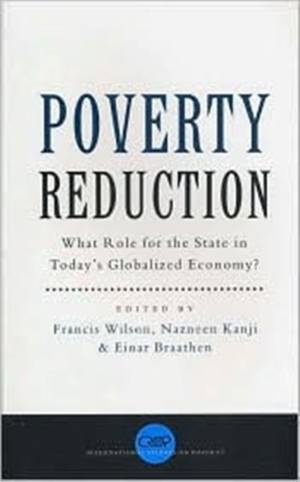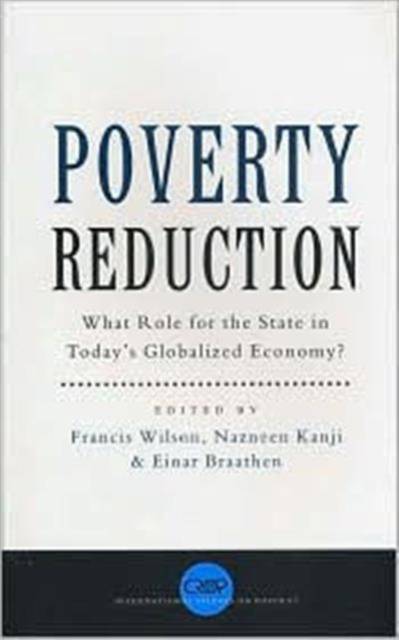
Je cadeautjes zeker op tijd in huis hebben voor de feestdagen? Kom langs in onze winkels en vind het perfecte geschenk!
- Afhalen na 1 uur in een winkel met voorraad
- Gratis thuislevering in België vanaf € 30
- Ruim aanbod met 7 miljoen producten
Je cadeautjes zeker op tijd in huis hebben voor de feestdagen? Kom langs in onze winkels en vind het perfecte geschenk!
- Afhalen na 1 uur in een winkel met voorraad
- Gratis thuislevering in België vanaf € 30
- Ruim aanbod met 7 miljoen producten
Zoeken
Poverty Reduction
What Role for the State in Today's Globalized Economy
€ 62,95
+ 125 punten
Omschrijving
Poverty and social exclusion have moved up the international policy agenda, in step with the ever more obvious failure of development to reduce mass immiseration and the growing gulf of inequality which latterday capitalism has created. In this volume, local and international scholars, acknowledging that the 'trickle down' and 'natural' processes of the market do not provide a remedy, turn the spotlight on the state.
In a series of general explorations of the issues involved and specific investigations in particular countries, mainly in Southern and Central Africa, they explore theoretically and empirically the difficult questions around how much can be expected of the state in poverty reduction. What political and cultural dimensions of the state need to be taken into account when considering how it should help shape activity in society? How is the role of power best analysed when considering strategies to reduce poverty? What is the meaning of pro-poor governance? What can be expected of specific interventions by government? How is the concept of citizenship incorporated in poverty reduction programmes? This volume makes two major contributions. It provides a rich seam of up-to-date information on the incidence and forms of poverty in Southern and Central Africa and the great variety of strategies and programmes by governments, aid agencies and international institutions to tackle it. Even more importantly, it throws light on the general questions, indeed the limitations and obstacles, around expecting too much of governments.Specificaties
Betrokkenen
- Uitgeverij:
Inhoud
- Aantal bladzijden:
- 400
- Taal:
- Engels
- Reeks:
Eigenschappen
- Productcode (EAN):
- 9781856499538
- Verschijningsdatum:
- 1/05/2001
- Uitvoering:
- Paperback
- Formaat:
- Trade paperback (VS)
- Afmetingen:
- 138 mm x 214 mm
- Gewicht:
- 485 g

Alleen bij Standaard Boekhandel
+ 125 punten op je klantenkaart van Standaard Boekhandel
Beoordelingen
We publiceren alleen reviews die voldoen aan de voorwaarden voor reviews. Bekijk onze voorwaarden voor reviews.








